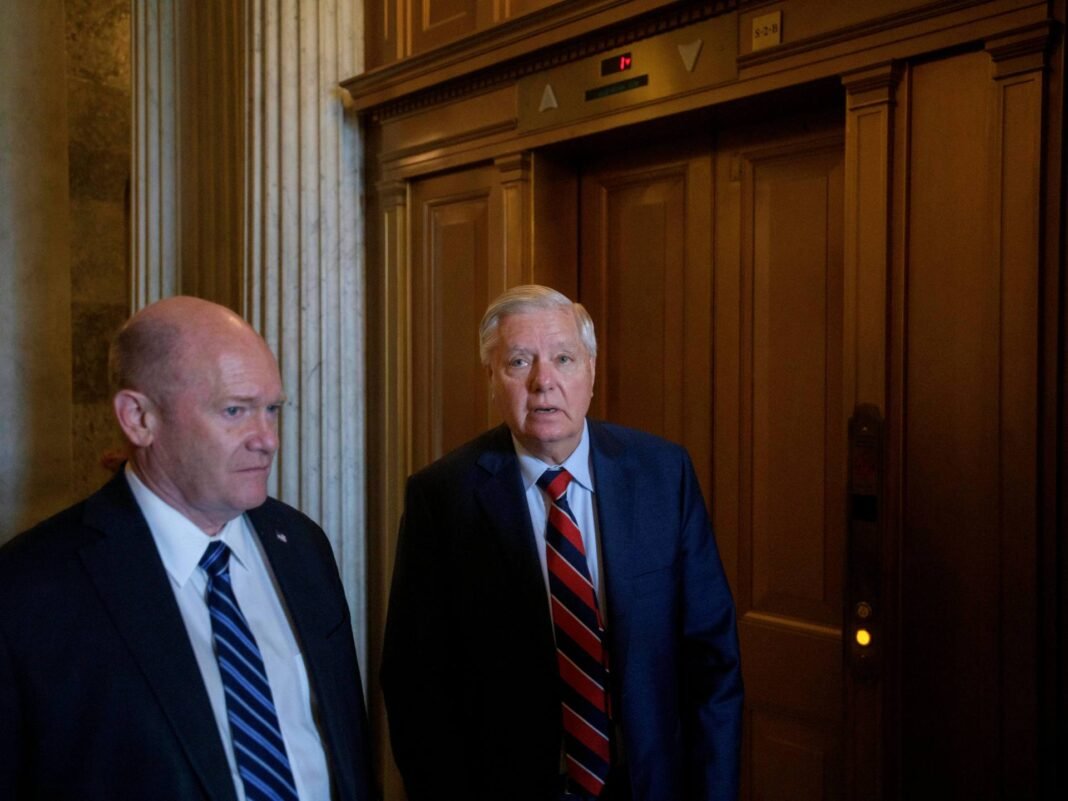senate Endorses Significant Reductions in U.S. Foreign Aid and Public Broadcasting Budgets
In a closely contested vote,the U.S. Senate approved legislation that cuts foreign aid funding by nearly $8 billion, aligning with president Donald Trump’s agenda to drastically reduce federal spending.
overview of Budgetary Cuts
The bill passed with a narrow 51-48 margin, retracting $9 billion from previously allocated funds. This includes over $1 billion slashed from the Corporation for Public Broadcasting’s budget.Notably, two Republican senators joined Democrats in opposing the measure, signaling bipartisan concern.
This vote also reflects early congressional support for reductions championed by the Department of Government Efficiency (DOGE), an agency established under trump’s administration to identify and implement government cost-saving measures.
Repercussions on Global Assistance Initiatives
A large share of these cuts targets international aid programs once overseen by USAID before its dissolution earlier this year under presidential directive. Founded during the Cold War to extend American influence through development assistance, USAID’s closure marks a significant pivot in U.S. foreign policy strategy.
The rescinded funds include approximately $4.15 billion aimed at fostering economic growth and democratic governance in developing countries. Additionally, nearly $800 million designated for emergency humanitarian relief-covering essentials like shelter and sanitation-and close to $500 million intended for food security and healthcare in conflict or disaster zones have been eliminated.
Humanitarian Fallout: Destruction of Vital Food Supplies
An official disclosed that nearly 500 metric tons of fortified biscuits meant to nourish around 27,000 malnourished children across Afghanistan and Pakistan will be destroyed due to these budget cuts-an alarming example illustrating tangible harm inflicted on vulnerable populations.
Controversy Surrounding Foreign Aid Effectiveness
Critics warn that reducing international assistance risks diminishing America’s global leadership role while ceding ground to strategic rivals such as China. Senator Brian Schatz highlighted the urgency: “People are dying right now-not despite us but becuase of us.”
On the other hand, some Republicans express conditional support but criticize inefficiencies within certain programs; Senator Lindsey Graham labeled parts of this spending as “a bunch of junk,” voicing frustration over allocations he views as misaligned with core aid objectives.
- The original proposal included a controversial cut of $400 million from an HIV prevention initiative credited with saving millions; though, bipartisan pressure led Republican leaders to remove this reduction prior to final passage.
Domestic Impact: Slashes on Public Media Funding
The legislation also withdraws about $1.1 billion over two years from public broadcasting organizations such as NPR and PBS along with more than 1,500 local stations nationwide-funds crucial during emergencies when dependable information is vital for communities facing natural disasters or crises.
This decision has sparked strong opposition among Democrats who argue it endangers essential public services without making meaningful progress toward reducing an estimated federal deficit exceeding $6 trillion annually.
Constitutional Debates Over Fiscal Authority
Detractors caution that granting expansive budget-cutting powers risks undermining constitutional safeguards designed to limit executive control over fiscal matters. Senator Cory Booker described it as “yet another instance” where foundational checks are being weakened.
simultaneously occurring, former Senate Majority Leader Mitch McConnell voiced reservations about handing what he called a “blank check” regarding spending decisions but ultimately supported the bill nonetheless.
Navigating Fiscal Discipline Amid Complex policy Trade-Offs
This legislative move highlights ongoing tensions between pursuing strict fiscal restraint and preserving critical support systems both abroad and at home.
As policymakers grapple with balancing national priorities against humanitarian obligations,the fallout-including wasted nutritional supplies destined for starving children and reduced access to trusted news outlets-underscores difficult choices amid shifting geopolitical dynamics and domestic pressures alike.





